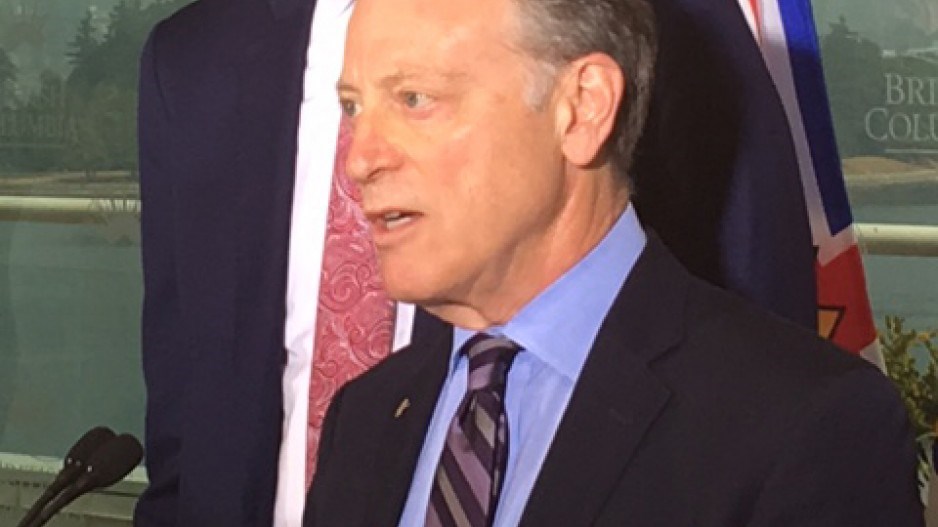Canada’s Federal Court of Appeal has given the B.C. government just three days to file a more precise argument, after granting it intervener status in an action against the Trans Mountain pipeline expansion.
The federal government’s approval of the $7.4 billion twinning of the Trans Mountain pipeline was challenged by a group of First Nations, environmentalists and municipal governments, including Burnaby and Vancouver. Those applications were combined into a single action challenging the National Energy Board and Government of Canada's approval of the pipeline expansion.
The federal court has approved intervener status for a number of other interested parties, including the government of Alberta.
On Tuesday (August 29), the new NDP government, making good on its election promise to use every available tool to stop the expansion, filed an application for intervener status.
The court granted the B.C. government intervener status, but gave it just three days to file a more precise memorandum explaining just what its position is.
"We are pleased that the court has granted our government's application for intervener status in the Federal Court of Appeal,” George Heyman, Minister of Environment and Climate Change said in a press release.
“It … is also absolutely appropriate and necessary that we have the opportunity to defend British Columbia's interests in this very important case. We will continue to defend B.C.'s coast and the economic and environmental interests that are so important to British Columbians."
But a scathing written decision by Justice David Stratas made it clear the court views the B.C. government like a party guest who failed to send an RSVP and then arrived late.
The court chastised the provincial government for its delay in filing its application, and for what it called a vague and "unsatisfactory" explanation of why it believes it should qualify as an intervener.
"British Columbia says that it considers its participation in the proceedings important, yet after five weeks it cannot yet say with much specificity how it intends to participate," Stratas writes. "British Columbia does not appear to understand the basic ground rules of the complex proceeding it is seeking to enter."
While granting the provincial government intervener status, he placed strict limits on it. He gave the province just three days to file a more detailed description of its position, and limited it to 15 pages.
Stratas also warned the province to stick to the issues at hand and not raise any new ones. He also granted the respondents (the Government of Canada and Trans Mountain) the right to respond to B.C.'s memorandum, once it is filed.
"In this court, interveners are guests at a table already set with the food already out on the table," Stratas wrote. "Interveners can comment from their perspective on what they see, smell and taste. They cannot otherwise add food to the table in any way"
The federal appeal court challenge to the approval of the Trans Mountain expansion is one of two legal cases the province plans to use, in an attempt to halt the the expansion.
The other challenge is by the Squamish First Nation, which filed a lawsuit against the province in BC Supreme Court for issuing an environmental certificate for the pipeline expansion.
The province is the respondent in that case, which could result in a strange spectacle in which the province’s strategy would be to win by losing.
Thomas Berger, a former BC Supreme Court judge who chaired the Royal Commission on the failed Mackenzie Valley pipeline project in the 1970s, will be leading the B.C. government's legal team.




